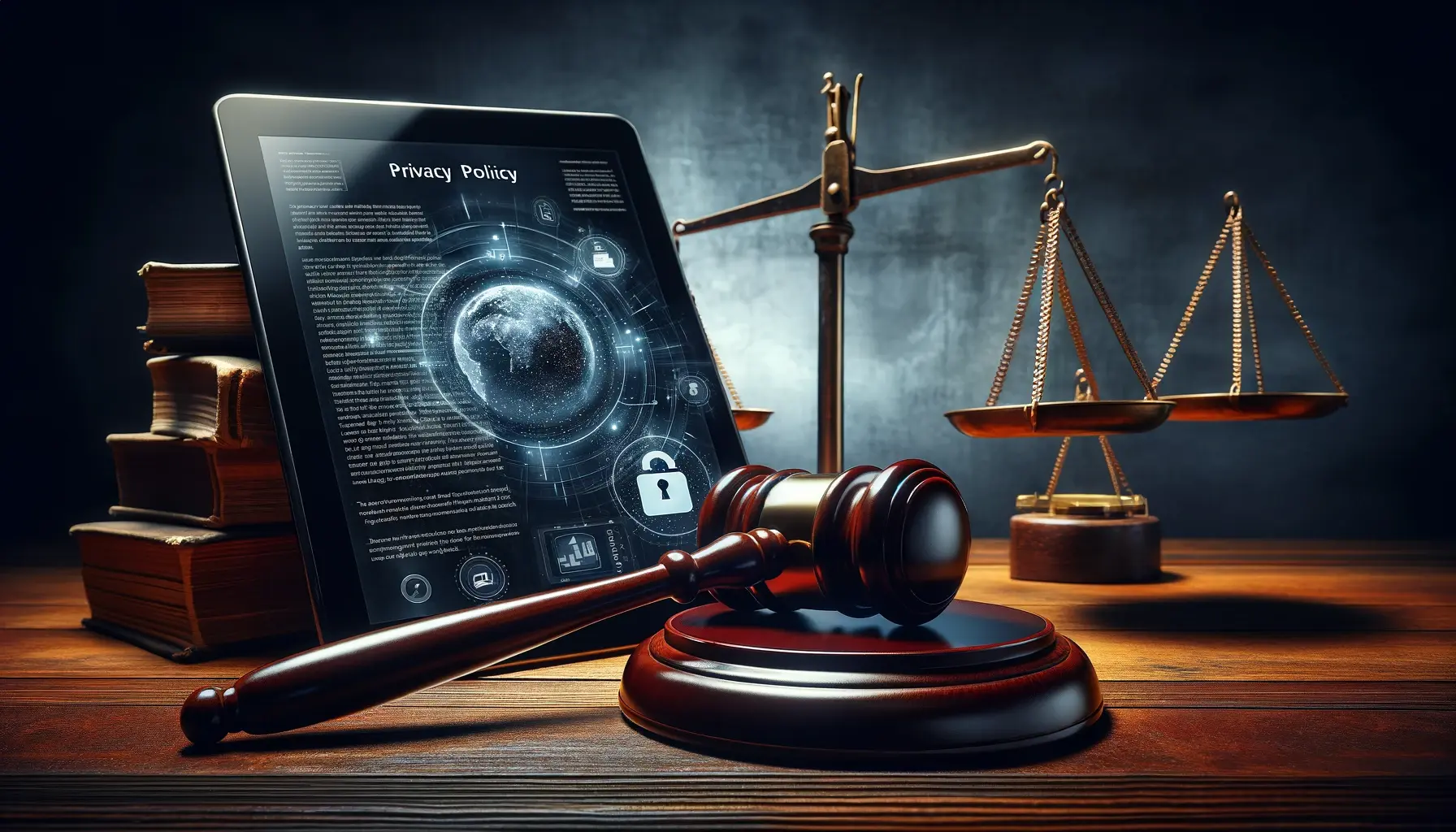In an age where information is both currency and weapon, privacy has become a cornerstone of discussion in defining the ethical boundaries of our modern surveillance state. The steady digitization of life, complemented by ever-evolving technologies, has positioned privacy as a pivotal frontier in the struggle to maintain individual liberty and personal autonomy. As we advance into a future powered by data, the conversation around safeguarding our digital footprints against widespread government surveillance and corporate tracking becomes critical. This understanding is not just important for self-preservation but also stands as a testament to the democratic principles upon which our society is built.
The implications of living in a global village, where cross-border data flow is as commonplace as trade, are multifaceted and complex. It implies that our personal information, from mundane preferences to intimate details, is potentially up for grabs in a booming data economy. We are met with the paradox of enjoying the fruits of this hyper-connected world – the sum of human knowledge at our fingertips – while wrestling with cybersecurity risks that threaten to erode the very foundations of our privacy rights. Embracing digital minimalism, understanding the role of VPN services, and recognizing the safe havens that privacy-enhancing technologies offer, are but a few strategies within our arsenal. It is within this context that we delve into the heart of the matter, exploring the depths of digital surveillance and the bulwarks that can be erected to protect the sanctity of our personal lives.
Understanding the Surveillance State
The concept of a surveillance state is not new, but the scope and scale have expanded dramatically with advancements in technology. Traditionally, surveillance was a tool leveraged by governments to ensure national security and maintain social order, its roots woven into the very fabric of governance. Today, we've transcended physical boundaries, finding that the digital realm allows for an unprecedented level of observation and data collection. Understanding the shift from conventional to modern surveillance technologies is essential. We now grapple with a complex amalgam of CCTV networks, satellite imagery, digital eavesdropping, and even biometric data collection, which together, create an omnipresent grid of information capture.

Modern surveillance methods are diverse, sophisticated, and often insidious. From metadata analysis to deep packet inspection, entities behind surveillance exploit the wealth of data generated by individuals. Governments, under the pretext of security, harness these methods to build comprehensive profiles of citizens, often without explicit consent. Corporate tracking, however, is fuelled by a different motive – profit. Tech giants and marketers clandestinely follow our digital footprints across the internet, feeding a mammoth data economy that relies on predictive algorithms and targeted advertising.
These entities' reach is not stifled by national borders, as data privacy intrusions are global issues. Intelligence alliances such as the Five Eyes network exemplify the transnational nature of surveillance, enabling shared access to intercepted communications beyond sovereign jurisdictions. Simultaneously, multinational corporations leverage international infrastructures to track user activity, often legally nebulous and tucked away in barely read privacy policies. This digital landscape crosses jurisdictions and defies traditional notions of borders, challenging the very essence of individual sovereignty and highlighting the pressing need for a comprehensive legal framework to mitigate the intrusive nature of global surveillance.
The Importance of Privacy
Privacy is enshrined as a fundamental human right, crucial for ensuring personal dignity and autonomy. Beyond a mere shield from unwanted scrutiny, privacy is the bulwark that allows individuals to freely express themselves, without the chilling effects of surveillance. It is a cornerstone of a democratic society where the freedom of thought and the confidentiality of communications are protected. In the digital world, privacy translates to the power to control one's own data, an ability that directly impacts one's navigation through the increasingly interconnected spheres of life.

The psychological and societal impacts of privacy erosion are profound. Studies suggest that the awareness of being surveilled can lead to self-censorship, altering behavior and stifling free expression. This phenomenon, known as the "chilling effect," undermines the very fabric of an open society. Additionally, privacy breaches have tangible consequences, including identity theft, financial loss, and social manipulation. When individuals cannot expect privacy, trust—the glue that binds communities together—begins to erode, leading to a fragmented and suspicious society.
Privacy also underpins the concept of personal autonomy. It is the empowering force that allows people to make choices without undue influence or interference. Privacy shields our inner sanctum, enabling us to develop ideas and beliefs away from the prying eyes of surveillance technologies, pervasive corporate tracking, and data profiling. As we pursue the preservation of privacy, we advocate for a future where individuals retain control over their personal sphere, nurturing the essence of what it means to be free in the digital age.
The Digital Threat Landscape
The proliferation of our digital lives brings with it an array of cybersecurity risks that threaten to compromise our personal information at every turn. We inhabit a data-driven world where our personal details are commodities, traded in the shadows of the data economy. Cybercriminals are constantly devising new methods to exploit vulnerabilities, be it through sophisticated phishing attacks, malware, or exploiting weak points in our digital devices. The stakes are immeasurably high, as a breach can result in not only the loss of privacy but also severe financial and emotional distress.

Identity theft and digital impersonation represent some of the most insidious of these risks. Cybercriminals siphon personal data, often profiting from the sale of this information or using it to commit fraud in the victim's name, leading to a complex web of legal and financial challenges for the unsuspecting individual. As we transact, interact, and share online, vigilance in protecting our digital identity becomes paramount. Steps such as maintaining strong, unique passwords, being wary of unsolicited communications, and monitoring credit reports are the basics of solid cyber hygiene.
Social media platforms, while connecting us with the broader world, also serve as a fertile ground for our personal exposure. The information shared, sometimes impulsively, can provide a treasure trove of data points for those wishing to profile, monitor, or influence us. Data miners and advertisers exploit these platforms, constructing detailed user profiles to target individuals with unnerving precision. It pays to be cautious about the digital trail we leave behind, including the photos we post, the places we check into, and even the seemingly innocuous quizzes we partake in.
The Internet of Things (IoT) even amplifies these issues, as our homes and cities become smarter, furnished with devices designed to streamline and simplify our lives. However, this convenience often comes at the price of privacy, with devices capable of listening, watching, and tracking every moment of our existence. Ubiquitous monitoring—where even our refrigerators, thermostats, and fitness trackers become potential spying agents—ushers in a new era of surveillance capabilities. Understanding how to navigate the IoT landscape with an eye for security will be crucial in minimizing threats and ensuring that our private lives remain just that—private.
Legal Frameworks and Rights
Within the United States, a patchwork of privacy laws provides varying levels of protection against unwarranted surveillance and data breaches. The Fourth Amendment protects citizens from unreasonable searches and seizures, setting a legal standard for privacy. However, the digital age has outpaced legislative updates, leaving gaps in protection when it comes to cyber surveillance and data storage. Sector-specific laws, such as the Health Insurance Portability and Accountability Act (HIPAA) for health information and the Children’s Online Privacy Protection Act (COPPA) for children’s data, offer additional safeguards, but the lack of a unified federal privacy law is a glaring omission in the defense of privacy.

Internationally, privacy laws offer a spectrum of protections. The European Union's General Data Protection Regulation (GDPR) stands out as a stringent model, emphasizing consent, data minimization, and individuals' rights over their data. Comparatively, Canada’s Personal Information Protection and Electronic Documents Act (PIPEDA) and similar regulations around the globe each embody unique approaches to data privacy, reflecting cultural and societal priorities. By examining international laws, one can discern emerging global standards and beneficial practices, advocating for stronger protections stateside.
Nevertheless, the legal protection of privacy often falls short. Even within robust frameworks like the GDPR, enforcement challenges persist, and sophisticated technologies swiftly outpace regulatory measures. As surveillance technologies evolve, so too must the legal structures that govern them. Advocacy and vigilance are vital in demanding legal reforms and holding entities accountable for privacy infringements. For individuals, leveraging existing rights is a proactive measure against privacy erosion. Educating oneself on the nature of consent, data rights, and tools available for privacy protection is essential to navigate the current legal landscape and to safeguard personal data against intrusion.
Practical Measures for Digital Privacy
In the digital world, encryption serves as the primary bulwark against intrusions into personal privacy. Through technologies like Secure Sockets Layer (SSL) and end-to-end encryption found in apps like Signal and WhatsApp, our communications can be shielded from prying eyes. This reassurance of data security, whether for emails, instant messages, or voice calls, helps maintain the confidentiality of our digital discourse. Understanding encryption and utilizing encrypted services are essential steps for anyone looking to protect sensitive information and maintain private conversations in the face of an ever-watchful surveillance apparatus.

Implementing secure communication practices is equally critical. Beyond choosing encryption-based solutions, personal habits such as regularly rotating passwords, using multi-factor authentication, and being conscious of phishing schemes are foundational to maintaining security. Additionally, adopting secure communication tools like virtual private networks (VPNs) can obscure one's digital location and connections, offering another layer against tracking and surveillance. Tailoring one's digital behavior can mitigate risks, such as refraining from sharing sensitive data over unsecured channels and carefully scrutinizing the permissions granted to mobile apps.
Browsing the internet leaves a trail of digital breadcrumbs that can be used to construct a comprehensive profile of one’s online life. Fortunately, various measures offer protection against such exposure. Using privacy-focused web browsers, employing tracker blockers, and regularly clearing cookies hinder the attempts by companies to follow online activity. Beyond these, understanding how to use browser security features and manage one's digital footprint can drastically reduce the trail left behind. Engaging with the digital world through a lens of privacy minimizes the scope of personal data that is vulnerable to collection and misuse.
The validity and integrity of a VPN can also play a significant role in maintaining anonymity online. Networks like Tor offer a higher degree of privacy, routing internet traffic through multiple relays to mask the user's location and usage from anyone conducting network surveillance or traffic analysis. While these tools are powerful, they are not a panacea; understanding the strengths and limitations of VPNs and anonymity networks is crucial for those who seek to maintain privacy against advanced tracking and data profiling.
In employing these practical measures, individuals empower themselves to navigate the challenges of a surveillance-heavy world. It's these tools, coupled with sensible digital habits, that forge a robust defense for our personal privacy in the digital age.
Advanced Privacy Strategies
Alternative and decentralized technologies offer promising avenues for those seeking to fortify their digital privacy. As mainstream platforms become more entwined with data collection practices, turning to decentralized networks and services becomes an increasingly attractive proposition. These systems disperse data across multiple nodes, making it more difficult for any single entity to gain access to or control over personal information. Encouraging the adoption of blockchain technology, for instance, provides a mechanism for secure, transparent transactions while protecting user anonymity.

Digital minimalism goes beyond a lifestyle choice; it's a strategic approach to online engagement. By consciously minimizing one's digital footprint, individuals can significantly reduce the volume of data that is susceptible to tracking and compromise. This includes limiting social media use to essential communications, being selective about app installations and permissions, and opting out of non-essential digital services that collect personal data. Embracing minimalism not only helps safeguard privacy but also curtails the noise in a world brimming with digital distractions.
In the digital realm, anonymity can extend to one's financial transactions as well. Exploring anonymous payment methods, such as using cryptocurrency or prepaid debit cards, can help keep purchases private and protect financial data. Cryptocurrencies, especially those designed with privacy in mind like Monero or Zcash, provide a means to conduct transactions without revealing one's identity, thereby maintaining financial privacy in an increasingly cashless society.
Secure data storage and backup solutions are critical for protecting personal information from both external threats and accidental loss. Utilizing encrypted storage devices and services ensures that sensitive data remains confidential, even if physical devices are lost or stolen. Moreover, engaging in regular data backups to secure locations mitigates the risk of irrecoverable data loss due to system failures, ransomware attacks, or other unforeseen events.
Employing these advanced privacy strategies requires a proactive mindset and a commitment to maintaining digital hygiene. While they demand more effort and often a departure from conventional digital behavior, the payoff is substantial: a marked increase in control over one's personal information and a reduction in the likelihood of unwelcome intrusions into one's private life.
Surveillance Self-Defense
In an interconnected and data-rich environment, the potential for surveillance extends beyond government entities to include cybercriminals, employers, and even interpersonal relationships. This makes understanding and recognizing social engineering attempts critical in our self-defense toolkit. Social engineering exploits human psychology rather than technological vulnerabilities, using deception to manipulate individuals into divulging confidential information. By becoming familiar with common tactics such as phishing emails, pretexting, and baiting, individuals can better anticipate and counter these attacks, protecting both their information and their identity.

Building a robust DIY Surveillance Self-Defense plan is an attainable goal for those committed to protecting their privacy. The first step is to conduct an honest assessment of one's digital footprint, followed by a systematic approach to minimizing exposures. This includes securing all devices with updated antivirus software and firewalls, using strong, unique passwords for different accounts, and regularly reviewing app permissions and security settings. Additionally, individuals should scrutinize the privacy policies of services and platforms they use to understand and limit how their data is collected, stored, and shared.
However, it's important to recognize that no individual is an island in the battle for digital privacy. There are many community resources available for support and education in matters of privacy and data protection. From online forums and privacy advocacy groups to workshops and informational resources provided by civil liberties organizations, these resources offer guidance and tools necessary to navigate the surveillance landscape. Engaging with these communities not only enhances one's knowledge but also fosters collective resilience against privacy threats and surveillance tactics.
As we become more savvy in our use of technology, so too must we become in defending against its misuse. Equipped with knowledge and community support, individuals can confidently assert their right to privacy, drawing upon a deep well of resources and strategies to secure their personal domain in the digital fortress. It is through proactive measures and mutual support that society can better ward off undue surveillance and reclaim control over personal information.
The Future of Privacy and Surveillance
As we look to the horizon, the future of privacy is unmistakably intertwined with the emergence of new technologies. Advances in quantum computing, artificial intelligence (AI), and the ever-expanding Internet of Things (IoT) represent potential threats as much as they promise revolutions in efficiency and enhancement of daily life. These emerging technologies have the capability not just to collect vast amounts of data but to analyze and interpret it in ways that could intrude upon the most intimate aspects of our lives. The potential for predictive analytics, facial recognition software, and emotion tracking to infringe upon individual privacy is a looming concern, necessitating vigilance and advocacy to ensure technology serves humanity and not the other way around.

Artificial intelligence, in particular, poses unique challenges and considerations for privacy. Machine learning algorithms can decipher patterns in data that reveal personal preferences, habits, and even predict future behavior. As AI systems become more autonomous and integrated into government surveillance and corporate data practices, the lines of consent and personal agency become blurred. The potential for AI to be used for real-time surveillance and predictive policing is a stark reminder of the need for ethical guidelines and robust privacy protections in AI development and deployment.
The role of privacy advocacy and activism becomes even more crucial in this context. As digital citizens, it's incumbent upon us to stay informed about technological advancements and their implications for privacy. Supporting advocacy groups, contributing to policy discussions, and demanding transparency and accountability from technology providers are actions we can all take. This collective pushback against invasive surveillance practices is essential in preserving our rights in an age where the erosion of privacy could otherwise become normalized.
While challenges abound, there's also room for hope—visions of a privacy-respecting world are not just fantasy. Innovations in privacy-enhancing technologies and encryption, combined with a growing public consciousness about data rights, cultivate the seeds of positive change. By continuing to advocate for user-oriented design, data minimization, and accountability in technology, we can navigate towards a future that respects and protects individual privacy, balancing the marvels of technological progress with the timeless value of personal freedom.
Conclusion
In the quest to protect privacy within the digital labyrinth of the modern surveillance state, reaffirming its importance is as necessary as the air we breathe. Our discussion has traversed the vast landscape of privacy threats and the bulwarks we can erect against them, but the heart of the matter remains unchanged: privacy is an indispensable element of a free and open society. The erosion of this fundamental right under the guise of security or convenience cannot go unchallenged. As individuals and a society, we must continuously assert the value of privacy and the right to control our own data. For without privacy, our autonomy, dignity, and freedom are at risk of being compromised by the very technologies that have the power to enrich our lives.

Our call to action is clear—becoming a privacy advocate is no longer a choice but a necessity. Understanding and exercising our privacy rights, employing secure technologies, and calling for accountable and transparent use of personal data by corporations and governments is imperative. By doing so, each of us contributes to the tide that can turn the battle in favor of privacy. We must champion the cause of data protection, support privacy-focused innovations, and demand policies that reflect the sanctity of our private lives. Together, we can shape a future where technology and privacy not only coexist but support the foundations upon which our country was built: liberty, justice, and the pursuit of personal sovereignty in the digital age.
